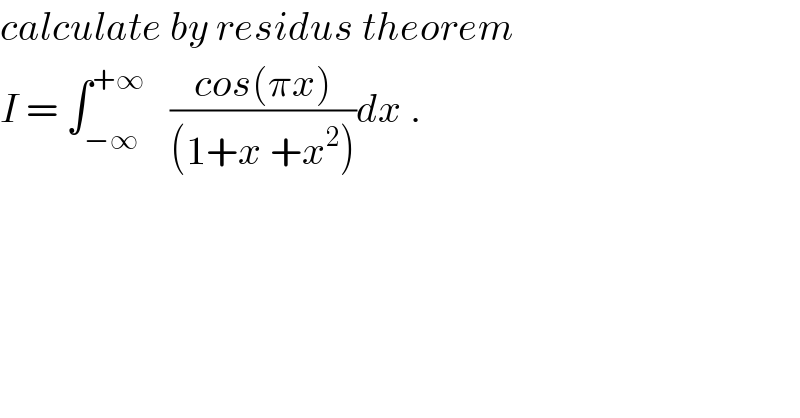
Question and Answers Forum
Question Number 33362 by prof Abdo imad last updated on 15/Apr/18

Commented by prof Abdo imad last updated on 15/Apr/18

| ||
Question and Answers Forum | ||
Question Number 33362 by prof Abdo imad last updated on 15/Apr/18 | ||
 | ||
Commented by prof Abdo imad last updated on 15/Apr/18 | ||
 | ||